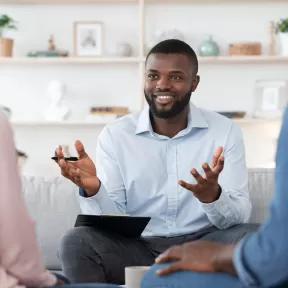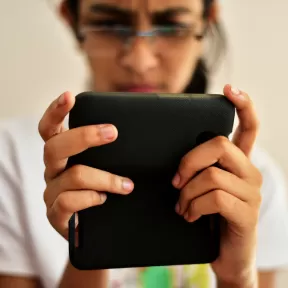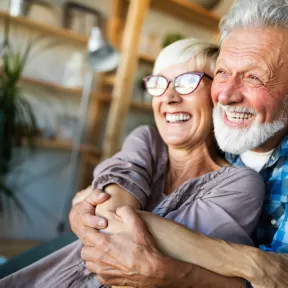Key points
Covid-19 has been a catalyst to relational awakening and change.
Couples are deciding what matters to them in their relationship and what to do about it.
Returning to love in relationships may be one silver lining gleaned from Covid-19.
COVID brought psychological challenges and subsequent awakening to many individuals; the quality of intimate relationships could no longer be circumvented by going off to work or other independent activities. Some relationships ended during the pandemic, and some were created. Online dating sites soared in 2020. Articles are wildly inconsistent about the statistics of breakups versus staying together.
Deciding whether to stay together or break up is generally fraught with ambivalence irrespective of the influence of a global pandemic. Many factors contribute, including the effect on children, giving up a comfortable lifestyle, fear of being alone, and the unknown convenience. Though the lack of sex, incompatibility, and changing needs are overt reasons to end a relationship, the decision to remain together as the global lockdown lifts brings new light to the psychological concept, ‘motivation.’
Recently, the NYTimes and Forbes cite economic factors as significant drivers of the decision to stay together, despite the desire to split up. “Couples may wish to split up, but not be able to afford to do so right now….. The number of engagements is increasing, with jewelry ring sales rising…..getting engaged can be low cost- certainly much cheaper than having a baby or getting divorced.” (Forbes.com)
The NY Times also cited logistics (location, schedules, and organization of time) as no longer viable alibis due to COVID lockdown to cover an affair. Settling back into one’s relationship seemed prudent, more accessible, or just practical. (nytimes.com)
“Transactional’ motivations (mutual self-interests, influence, financial exchanges) are reasons to stay together and yet are sublimations and symptomatic representations of deeper issues in the ailing relationship. The general cultural acceptance that the bonds of love are often supplanted by the bonds of one’s metaphoric “currency” or actual wallet or pocketbook misses the point.
article continues after advertisement
Ultimately, the need for love is fundamental, way more essential than many can consciously allow or accept. However, Covid has decidedly pushed or ushered many couples onto therapists’ sofas, despite the emotional exposure and vulnerability it brings. Maybe love has everything to do with it?
Suppose much of the decision to stay together is based on economics or pragmatism. In that case, neither the NY Times nor the Forbes articles address why so many couples are entering therapy to deal with less tangible matters. Perhaps more than money and the utility of a ceased affair motivate the decision. Indeed, the added stressors of confinement, sharing, division of labor, no break in parenting responsibilities have all contributed to tension, dissatisfaction, and utter emotional chaos in households. But, therapists are reporting that couples seek meaning in their relationships versus cessation of stress or better ways to compromise. Some couples and individuals realize the impermanency of life; we die and hence the questions, “How do I want to live? What is important to me?” Covid, in this sense, came to the rescue in returning us to matters of the heart, mind, and body, particularly in relationship matters. After all, we cannot remove the human element from humanity, despite technology and AI’s efforts to manufacturer the fulfillment of all our needs.
Seeking psychological help for a relationship rather than splitting up is more than for convenience; therapy is hard work. Many couples enter therapy to discover or re-discover love, joy, and laughter, repair years of resentments, anger, and hostility and work on communication, including sexual communication and eroticized sex that comes from love. Although splitting up may be a possible outcome, couples’ intent to start treatment during and after the acute phase of the pandemic, in my experience, has been based primarily on the desire to take responsibility for themselves in the relationship and repair and restore love. Perhaps love is viewed as novel by some current social standards, and to that end, it is not likely these couples will present themselves in therapy anyway.
It is more challenging to take responsibility for the emotional and communication fall-out in a marriage than assign blame or solve the matter by making behavioral changes. In some couples’ therapy, the outcome may be more sharing of dishwashing and child bathing and less impulse buying, but do behavioral changes alter deep emotions or restore or create love? It is not likely that love exists solely because your partner is helping you more with domestic duties. Does behavioral change, change emotions? According to relational theory, uncovering emotions, deepening relational bonds through understanding, empathy, and respect have a definite impact on partner satisfaction and genuine acceptance and love. Clearly, for this blogger, a relational approach is the sine qua non on the path to true partnership and joy. Changing behavioral patterns is more manageable but will not likely hit the target of mutually experienced love, respect, and acceptance inherent in being human.
During therapy, emotional truth becomes revealed where nuances, the juxtaposition of sentences, and unconscious motivation guide the process. Couples are encouraged to disclose how they feel and understand the historical and current reasons behind their feelings. Rarely has economic issues, despite being front and center often at the beginning of treatment, ultimately drive the bus as the conscious or unconscious motivation to stay together or marry. Is our culture so inexorably tied to relationships being transactional in the end? I think not.
article continues after advertisement
Emotions are deep, experienced in gradations, and we have only a handful of them. Yet, the defenses we build around protecting them are endless. Psychodynamic and relational theories focus on how we protect our vulnerabilities from becoming revealed. Anna Freud’s Ego Psychology is built on the premise that we create defenses to keep ourselves emotionally safe from feelings of vulnerability, like loss, sadness, and shame. Hence, focussing on behaviors in partners and seeking relief through making behavioral compromises does not tap into the vulnerability of love and potentially profound loss; letting go is enormously painful.
Over the past 14 months, many therapists have treated couples who are in genuine pain and who have sought greater meaning and depth in their relationship. COVID, for many couples, has been the catalyst for change. Some people are no longer seeking to participate in the ‘disposable’ phenomenon that modern culture has propagated. Many couples are returning toward the obvious: What about love? And, can a partner be loved for who they are, not for who the other needs them to be? Can each partner be authentic so that the person the other sees is the true self?










